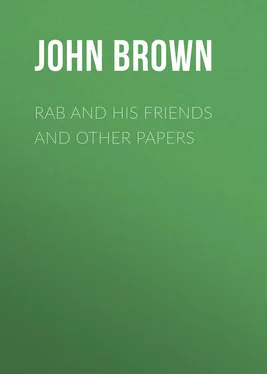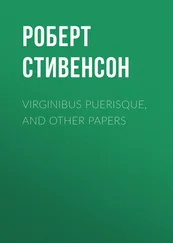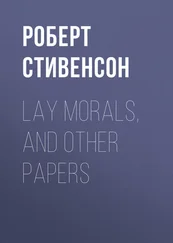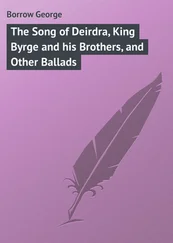John Brown - Rab and His Friends and Other Papers
Здесь есть возможность читать онлайн «John Brown - Rab and His Friends and Other Papers» — ознакомительный отрывок электронной книги совершенно бесплатно, а после прочтения отрывка купить полную версию. В некоторых случаях можно слушать аудио, скачать через торрент в формате fb2 и присутствует краткое содержание. Жанр: foreign_antique, foreign_prose, на английском языке. Описание произведения, (предисловие) а так же отзывы посетителей доступны на портале библиотеки ЛибКат.
- Название:Rab and His Friends and Other Papers
- Автор:
- Жанр:
- Год:неизвестен
- ISBN:нет данных
- Рейтинг книги:5 / 5. Голосов: 1
-
Избранное:Добавить в избранное
- Отзывы:
-
Ваша оценка:
- 100
- 1
- 2
- 3
- 4
- 5
Rab and His Friends and Other Papers: краткое содержание, описание и аннотация
Предлагаем к чтению аннотацию, описание, краткое содержание или предисловие (зависит от того, что написал сам автор книги «Rab and His Friends and Other Papers»). Если вы не нашли необходимую информацию о книге — напишите в комментариях, мы постараемся отыскать её.
Rab and His Friends and Other Papers — читать онлайн ознакомительный отрывок
Ниже представлен текст книги, разбитый по страницам. Система сохранения места последней прочитанной страницы, позволяет с удобством читать онлайн бесплатно книгу «Rab and His Friends and Other Papers», без необходимости каждый раз заново искать на чём Вы остановились. Поставьте закладку, и сможете в любой момент перейти на страницу, на которой закончили чтение.
Интервал:
Закладка:
John Brown
Rab and His Friends and Other Papers
"Squeeze out the whey," was the pithy and sharp advice of his crusty, acute, faithful, and ill-fated friend, William Taylor of Norwich, author of English Synonyms, to Southey, when that complacent and indefatigable poet and literary man of all work sent him the MSS. of his huge quartos. It would perhaps have been better for his fame had the author of Thalaba, Don Roderick, and The Curse of Kehama taken the gruff advice.
I am going to squeeze my two volumes into one, keeping it a profound secret as to what I regard as whey and what curd; only I believe the more professional papers, as Locke and Sydenham, Dr. Marshall, etc., are less readable – less likely to while away the idle hours of the gentle public, than those now given: they are squeezed out not without a grudge.
My energetic friend, J. T. Fields, of the well-known Boston firm, has done the same act of excision by the two volumes that I now do, – and has done it admirably. Only I could not but smile when I saw Horo Subsecivo exchanged for "Spare Hours," – a good title, but not mine; and my smile broke into laughter when I found myself dedicated "affectionately" to an excellent man and poet, whom, to my sorrow, I do not know.
While thanking my American friends, and shaking hands with them across the great deep, I cannot deny myself the satisfaction of acknowledging the following portion of a letter received a day or two ago from an unknown friend – Charles D. Warner, of Hartford, Conn., U.S.: —
"I see you lay some stress upon the fact that your venerated father was very tenacious of purpose, and that that is a trait of the Browns. The branch of the family in this country also assert the same of themselves.
"In further reading how your father came, late in life, when it was too late, to know that he had neglected his body, I called to mind a remark of another Dr. Brown, which I thought you might like to hear, as confirmatory of your theory of the unity of the Browns.
"Dr. John Brown, D.D., was a native of Brooklyn, in this State. He was settled at one time in Cazenovia, New York, and finally died at the age of fifty, prematurely worn out, at Hadley, Mass. He was a man of great tenacity of purpose, strength of intellect, a clear thinker, and generally a powerful man. He was also much beloved, for his heart was large and warm.
"While he was waiting for death to overtake him, being undermined as I have said, I have heard my mother say that he once remarked, 'I have worn myself out in labour which God never required of me, and for which man never will thank me.'"
Those of my readers who think life in the main more serious than not, will forgive this grave and weighty passage. Those who do not think so, will not be the worse of asking themselves if they are safe in so doing.
23, Rutland Street,
15th Feb. 1862.
Human wisdom has reached its furthest point when it gets to say – I do not know – God knows. In the child's story of "Beauty and the Beast" the Beast says to Beauty, "'Doyou not think me very ugly?'"
"Why, yes," said she, "for I cannot tell a story." You are right," replied the 'Beast; "and besides being ugly I am very stupid."
"I think you cannot be very stupid," said Beauty, "if you yourself know this." – From a thoughtful Discourse on Plato, by, I believe, a Liverpool Merchant.
RAB AND HIS FRIENDS
Four-and-thirty years ago, Bob Ainslie and I were coming up Infirmary Street from the High School, our heads together, and our arms intertwisted, as only lovers and boys know how, or why.
When we got to the top of the street, and turned north, we espied a crowd at the Tron Church. "A dog-fight!" shouted Bob, and was off; and so was I, both of us all but praying that it might not be over before we got up! And is not this boy-nature? and human nature too? and don't we all wish a house on fire not to be out before we see it? Dogs like fighting; old Isaac says they "delight" in it, and for the best of all reasons; and boys are not cruel because they like to see the fight. They see three of the great cardinal virtues of dog or man – courage, endurance, and skill – in intense action. This is very different from a love of making dogs fight, and enjoying, and aggravating, and making gain by their pluck. A boy – be he ever so fond himself of fighting, if he be a good boy, hates and despises all this, but he would have run off with Bob and me fast enough: it is a natural, and a not wicked interest, that all boys and men have in witnessing intense energy in action.
Does any curious and finely-ignorant woman wish to know how Bob's eye at a glance announced a dog-fight to his brain? He did not, he could not see the dogs fighting; it was a flash of an inference, a rapid induction. The crowd round a couple of dogs fighting, is a crowd masculine mainly, with an occasional active, compassionate woman, fluttering wildly round the outside, and using her tongue and her hands freely upon the men, as so many "brutes;" it is a crowd annular, compact, and mobile; a crowd centripetal, having its eyes and its heads all bent downwards and inwards, to one common focus.
Well, Bob and I are up, and find it is not over: a small thoroughbred, white bull-terrier, is busy throttling a large shepherd's dog, unaccustomed to war, but not to be trifled with. They are hard at it; the scientific little fellow doing his work in great style, his pastoral enemy fighting wildly, but with the sharpest of teeth and a great courage. Science and breeding, however, soon had their own; the Game Chicken, as the premature Bob called him, working his way up, took his final grip of poor Yarrow's throat, – and he lay gasping and done for. His master, a brown, handsome, big young shepherd from Tweedsmuir, would have liked to have knocked down any man, would "drink up Esil, or eat a crocodile," for that part, if he had a chance: it was no use kicking the little dog; that would only make him hold the closer. Many were the means shouted out in mouthfuls, of the best possible ways of ending it. "Water!" but there was none near, and many cried for it who might have got it from the well at Black-friar's Wynd. "Bite the tail!" and a large, vague, benevolent, middle-aged man, more desirous than wise, with some struggle got the bushy end of Yarrow's tail into his ample mouth, and bit it with all his might. This was more than enough for the much-enduring, much-perspiring shepherd, who, with a gleam of joy over his broad visage, delivered a terrific facer upon our large, vague, benevolent, middle-aged friend, – who went down like a shot.
Still the Chicken holds; death not far off. "Snuff! a pinch of snuff!" observed a calm, highly-dressed young buck, with an eye-glass in his eye. "Snuff, indeed!" growled the angry crowd, affronted and glaring. "Snuff! a pinch of snuff!" again observes the buck, but with more urgency; whereon were produced several open boxes, and from a mull which may have been at Culloden, he took a pinch, knelt down, and presented it to the nose of the Chicken. The laws of physiology and of snuff take their course; the Chicken sneezes, and Yarrow is free!
The young pastoral giant stalks off with Yarrow in his arms, – comforting him.
But the Bull Terrier's blood is up, and his soul unsatisfied; he grips the first dog he meets, and discovering she is not a dog, in Homeric phrase, he makes a brief sort of amende , and is off. The boys, with Bob and me at their head, are after him: down Niddry Street he goes, bent on mischief; up the Cowgate like an arrow – Bob and I, and our small men, panting behind.
There, under the single arch of the South Bridge, is a huge mastiff, sauntering down the middle of the causeway, as if with his hands in his pockets: he is old, gray, brindled as big as a little Highland bull, and has the Shaksperian dewlaps shaking as he goes.
Читать дальшеИнтервал:
Закладка:
Похожие книги на «Rab and His Friends and Other Papers»
Представляем Вашему вниманию похожие книги на «Rab and His Friends and Other Papers» списком для выбора. Мы отобрали схожую по названию и смыслу литературу в надежде предоставить читателям больше вариантов отыскать новые, интересные, ещё непрочитанные произведения.
Обсуждение, отзывы о книге «Rab and His Friends and Other Papers» и просто собственные мнения читателей. Оставьте ваши комментарии, напишите, что Вы думаете о произведении, его смысле или главных героях. Укажите что конкретно понравилось, а что нет, и почему Вы так считаете.












